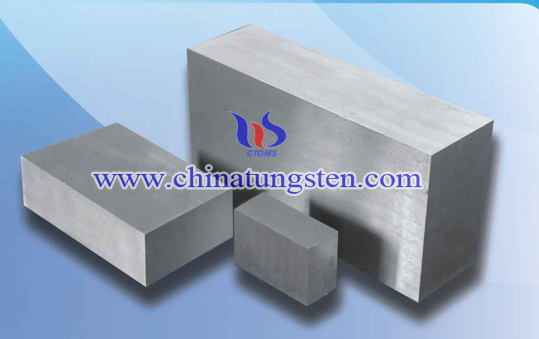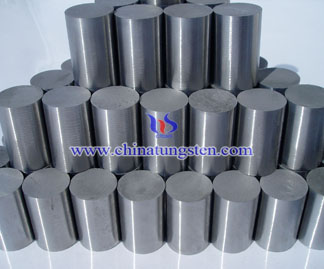TZM Alloy Properties

Introduction
TZM alloy has many excellent physical and chemical properties which is similar to molybdenum’s, including melting point, high strength, high elastic modulus, low linear expansion coefficient, low vapor pressure, good thermal and electrical conductivity, good corrosion resistance and good high temperature mechanical properties, so it is widely used in various fields as a high-temperature parts. However, compared with the TZM alloy, molybdenum recrystallization temperature and strength is low and brittleness is large, so molybdenum application range is limited. TZM alloy is based on Mo matrix to add a small amount of Zr, Ti, and C elements. These finely dispersed particles can prevent molybdenum grain growth possibility at high temperature. Thereby increasing recrystallization temperature of the alloy, making alloy’s properties has been greatly improved.
High Temperature Property
TZM alloy room temperature and high temperature tensile mechanical properties: TZM alloy tensile strength at room temperature is significantly higher than molybdenum’s, but TZM alloy’s elongation room is not as good as molybdenum. Experiments show that at 1200 ℃, the tensile strength of molybdenum has been a significant decline, but the tensile strength of the TZM alloy remains at a high level. This is mainly because TZM alloy’s second phase strengthening impedes dislocation movement, resulting in alloy’s strength improved. In addition, these dispersed second phases will effect dislocation movement, leading to deformation ability and plastic reduced.
TZM alloy recrystallization temperature: recrystallization temperature of molybdenum is about 850℃, and TZM alloy recrystallization temperature is about 1350℃. TZM alloy has higher recrystallization temperature, so TZM alloy’s properties get improving and the application scope has expand as well. TZM alloy has high recrystallization temperature is mainly because the second phase particles has strong pinning effect on dislocations and sub-boundaries, so that sub-structure is stable. In recrystallization reverting process, it will impede dislocation motion and sub-boundaries merge, maintaining a high dislocation density, delaying the recrystallization nucleus formed, thereby improving the recrystallization temperature.
TZM alloy high temperature oxidation resistance: TZM has good high temperature mechanical properties, so that it can be widely used as high temperature material in many field. But TZM alloy has poor high temperature oxidation resistance, and it can not formed anti-oxidation layer at high temperature to protect them, and thus the oxidation rate is faster and service life is shorter at high temperatures. In order to improve high temperature oxidation resistance of the alloy, there are two main methods: alloying and coating method.
TZM alloy high temperature bending and creep properties: Compared with molybdenum, TZM alloy exhibits excellent bending resistance performance, but the higher the temperature, the worse its anti-bending performance. TZM alloy creep properties and stress intensity is close related with temperature, with the increase of cyclic stress range, cyclic creep becomes more serious. In the same cyclic stress range, temperature has big effect on the cyclic creep, as the temperature rises, the more obvious cyclic creep showing.
TZM alloy high temperature fatigue resistance: The study found that with maximum cyclic stress increases, high temperature anti-fatigue life continues to shorten, and elongation at break continues to increase.
Physical and Chemical Properties
TZM alloy has good physical property and chemical property.
| Material | Density(g/cm3) | Melting Point(℃) | Boiling Point(℃) |
| TZM | 10.22 | 2617 | 4612 |
TZM alloy High Temperature Tensile Strength and Elongation at Break
| Temperature/℃ | RT | 1000 | 1200 | 1300 | 1400 |
| Tensile Strength/ MPa | 1140-1210 | 700-720 | 320-360 | 190-210 | 140-170 |
| Elongation at Break/% | 7.5-13.0 | 5.2 | 9.0 | 11.5-13.5 | 11.0-16.0 |
TZM Alloy Mechanical Properties:
| Mechanical Property | Tensile Properties% | Elastic ModulusGPa | Yield StrengthMPa | Tensile StrengthMPa | Fracture Toughness(MPa·m1/2) |
| Data | <20 | 320 | 560-1150 | 685 | 5.8-29.6 |
TZM Alloy Thermal and Electrical Properties
| property | Thermal Conductivity/K-1(20~100℃) |
Electric Conductivity W/M·K |
Temperature/℃ |
Specific Resistance/Ω·M |
| Data | 5. 3×10-6 | 126 | 400 | (5. 3~5. 5)×10-8 |

